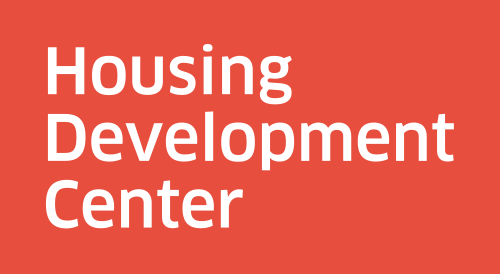Message from Traci: Stepping Out of Our Silos
Dear friends,
When we step out of our silos and collaborate across divides, we see problems differently. Sometimes, the view from outside helps us to ask deeper questions and to see our purpose more clearly.
Consider Oregon’s newly authorized 2022-2027 Medicaid 1115 Demonstration waiver. Under the five-year rule change, Medicaid dollars can be used to do something they previously couldn’t: help hungry and housing-insecure families and individuals access food, pay rent, and meet other health-related social needs. If it works as intended, the waiver will change outcomes for people in or on the verge of crisis. It’s a powerful policy win, which demonstrates how creative (and sometimes simple) solutions can emerge—and root problems get redefined—when leaders widen their fields of focus to address complex issues.
At HDC, our strength comes from working with partners who bring diverse perspectives to housing. When we work with New Narrative and Cascadia Health to develop projects such as Douglas Fir Apartments and Centennial Place Apartments, we see housing from a mental and behavioral healthcare perspective. When we work with Farmworker Housing Development Corporation to develop and preserve Latinx-centered, self-managed housing communities in rural and suburban Oregon, we see housing from an immigrant rights and workforce development perspective. Each time we collaborate with a partner who brings deep understanding of a social issue or resident community to a housing problem, it widens our perspective. It empowers us to ask better questions and do better work.
Any of us can benefit from seeking out perspectives that complement and challenge our own. Why not start by asking for feedback from folks who live downstream from your decisions? Last fall, HDC’s Liz Winchester invited a panel of affordable housing asset managers to share advice to development teams about how to set up properties for long-term success. Architects and developers packed the room to hear from stakeholders whose feedback too often gets sidelined: folks who care for properties after they’re built. Participants took away answers to important questions, on matters ranging from space planning to cost budgeting, they couldn’t have known to ask. (Read our recap or watch the video.)
I’ve had these kinds of light-bulb moments as a member of the 2022-23 Fellows Program of the American Leadership Forum of Oregon (ALF). ALF brings together cross-sector leaders to explore complex and broad-based issues, with emphasis on bridging the urban-rural divide. I’m an Oregon native who has lived and worked in the Portland area for much of my life. Traveling to rural communities from Newport to Ontario with my ALF cohort, I see Oregon through the eyes of people who live in those communities. I learned about issues such as water scarcity, which deeply affect huge swaths of the state. I gained a sharper understanding of how building affordable housing is a complex and difficult challenge in rural communities.
Issues core to our mission at HDC, such as boosting affordable housing production and preserving aging properties across the state, can’t be addressed without cross-sector, cross-discipline, cross-community collaboration. At the same time, we miss the full value of collaboration when we limit our focus to issues instead of the wholeness of people and communities. How do we step outside our silos with curiosity? For anyone engaged in antipoverty and social justice work, it’s a good question to hold in mind. When we make space to discover an answer to a question we didn’t know to ask, or to confront a truth we’ve chosen to ignore, new possibilities emerge.
With warm regards,

